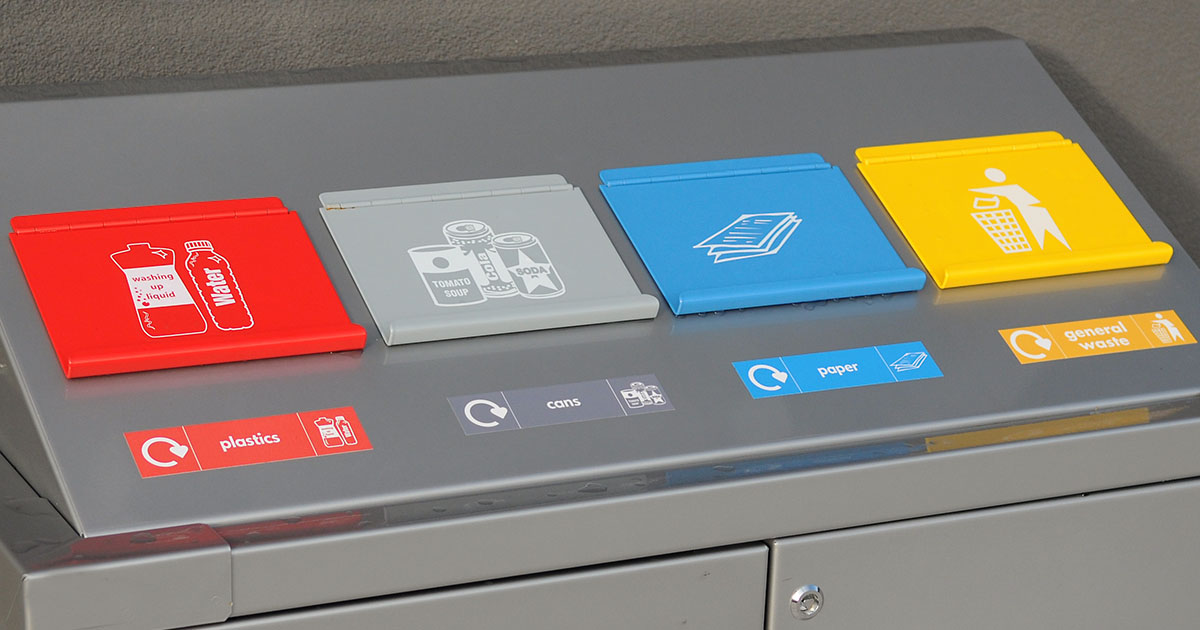Birmingham Landfill Waste and Recycling Statistics 2025

Amid ongoing industrial actions affecting household waste collection across Birmingham, our report leverages all the latest data to examine Birmingham’s landfill and recycling statistics.
In this article, we also investigate how Birmingham compares to other parts of England and what steps are being taken by Birmingham City Council to bolster recycling efforts and reduce waste.
How Much Waste Does Birmingham Generate?
According to the latest government figures found in the year ending March 2024:
- Birmingham City Council collected 443,205 tonnes of waste that year. That’s the equivalent to the weight of 63,315 male elephants!
- 88% (390,328 tonnes) came from households, while 12% (52,877 tonnes) was from non-household sources such as businesses and construction.
- On average, each Birmingham resident generated 5kg of household waste — below the national average of 362.7kg per person.
Birmingham Waste & Recycling Statistics: How Does the City Compare Regionally and Nationally?
The report also found that:
- Out of 321 local authorities in England, Birmingham ranks 11th for total waste collected.
- Only a few councils collected more — including Greater Manchester, which tops the list with 1,074,766 tonnes, and Hertfordshire with 551,093 tonnes.
- Within the West Midlands, Birmingham collects the most waste overall, followed by Staffordshire County Council (404,188 tonnes) and Worcestershire County Council (307,585 tonnes).
However, when it comes to recycling:
- Birmingham ranks 4th in the West Midlands for recycling, with 22% (96,220 tonnes) of total waste recycled.
- In the year ending March 2024, only 7% of household waste in Birmingham was sent for recycling, reuse, or composting — well below the national average of 42.3%.
- This places Birmingham among the lowest-performing councils for recycling in England, just ahead of Westminster (22.4%), while South Oxfordshire leads with 62.9%.
How Much of Birmingham’s Waste Is Sent to Landfill or Incinerated?
While Birmingham faces challenges with recycling, the city has made progress in reducing its reliance on landfills:
- In the year ending March 2024, just 9% of Birmingham’s waste was sent to landfill.
- The year before ending in March 2023, Birmingham recorded its lowest-ever landfill figure, with just 5,234 tonnes sent to landfill.
- Compared to 2020, Birmingham has more than halved the amount of waste it sent to landfill by 2024, reflecting a clear downward trend.
Table of data of waste sent to landfill (2020-2024):
| Year | Landfilled |
|---|---|
| 2019-20 | 40,121 |
| 2020-21 | 30,099 |
| 2021-22 | 11,460 |
| 2022-23 | 5,234 |
| 2023-24 | 12,800 |
- Meanwhile, 76% of the city’s waste (334,833 tonnes) is incinerated to generate energy — a figure that has remained consistent over the last decade.
Other Concerning Waste Figures – and How They’re Being Tackled
- According to the UK’s Office for Local Government (Oflog), the city’s recycling contamination rate has risen significantly — from 3% in 2020 to 8.9% in 2023.
- This means that in 2023, nearly 1 in 11 tonnes of recycling were rejected due to contamination or incorrect sorting.
In response to challenges like rising contamination and the need to reduce landfill and incineration reliance, Birmingham City Council is pursuing a circular economy approach — one that values reuse, repair, and recovery over disposal.
Key actions they’ve been implementing include:
- Rolling out weekly kerbside food waste collections to all households between April and November 2025, to reduce organics in general waste.
- Launching community repair cafés, where residents can bring broken items — like electronics, clothing, or bikes — to be fixed rather than thrown away.
- Investing in cutting-edge energy-from-waste technology to turn non-recyclable waste into usable energy, reducing the need for landfill sites.
Looking to the Future
Creating a zero-waste city won’t happen overnight and is a long-term ambition— and while systemic change is essential, community support plays a key role too. Small, everyday actions like choosing reusable items, composting food scraps, and sorting recycling correctly can make a meaningful difference and reduce pressure on local services.
If you are looking for professional help for larger clear-outs and business waste, our licensed rubbish removal services in Birmingham offer a reliable and hassle-free option. We divert over 95% of waste from landfill and operate by off-setting our carbon emmisions, helping households and businesses across the city to contribute to a cleaner and greener future.

